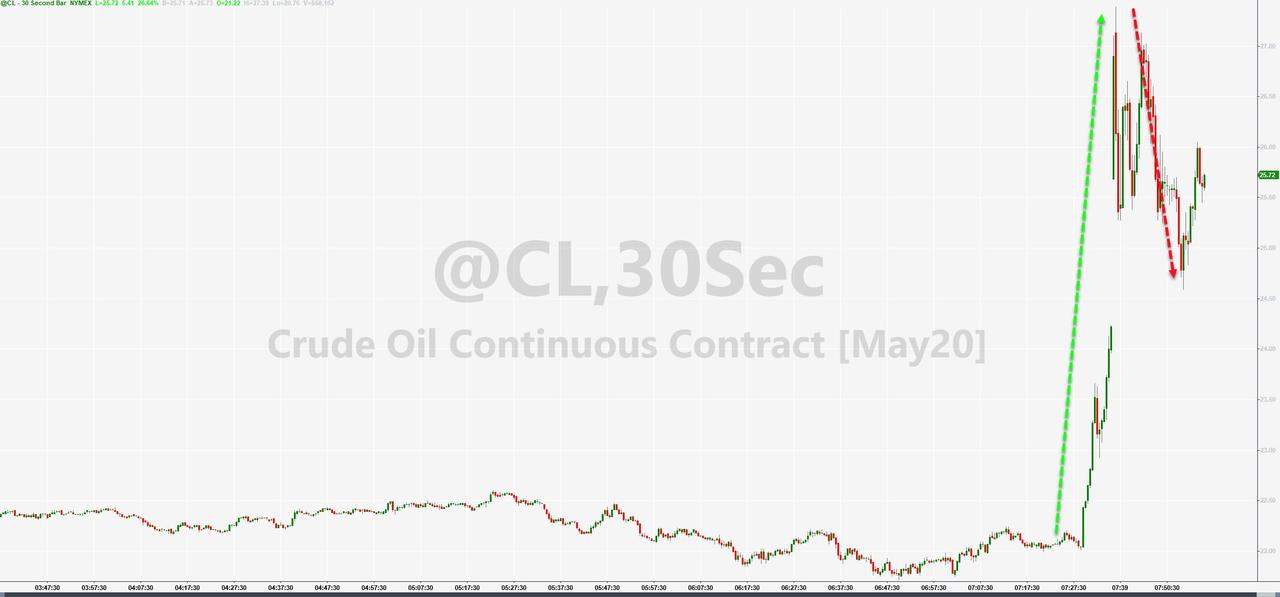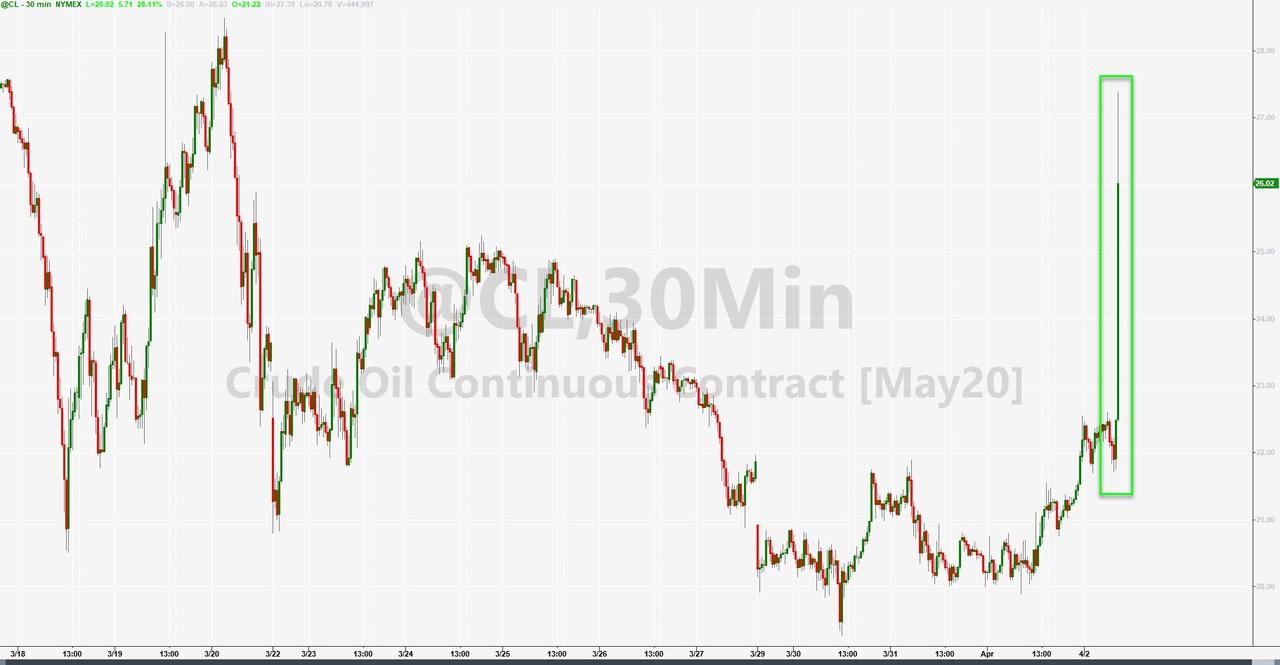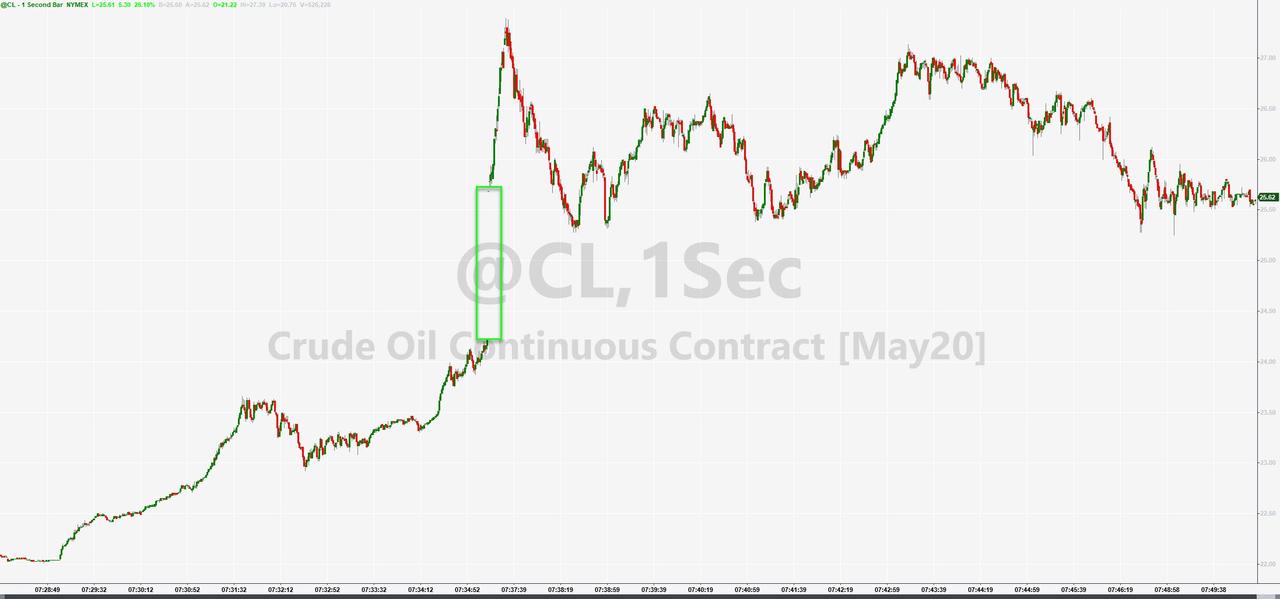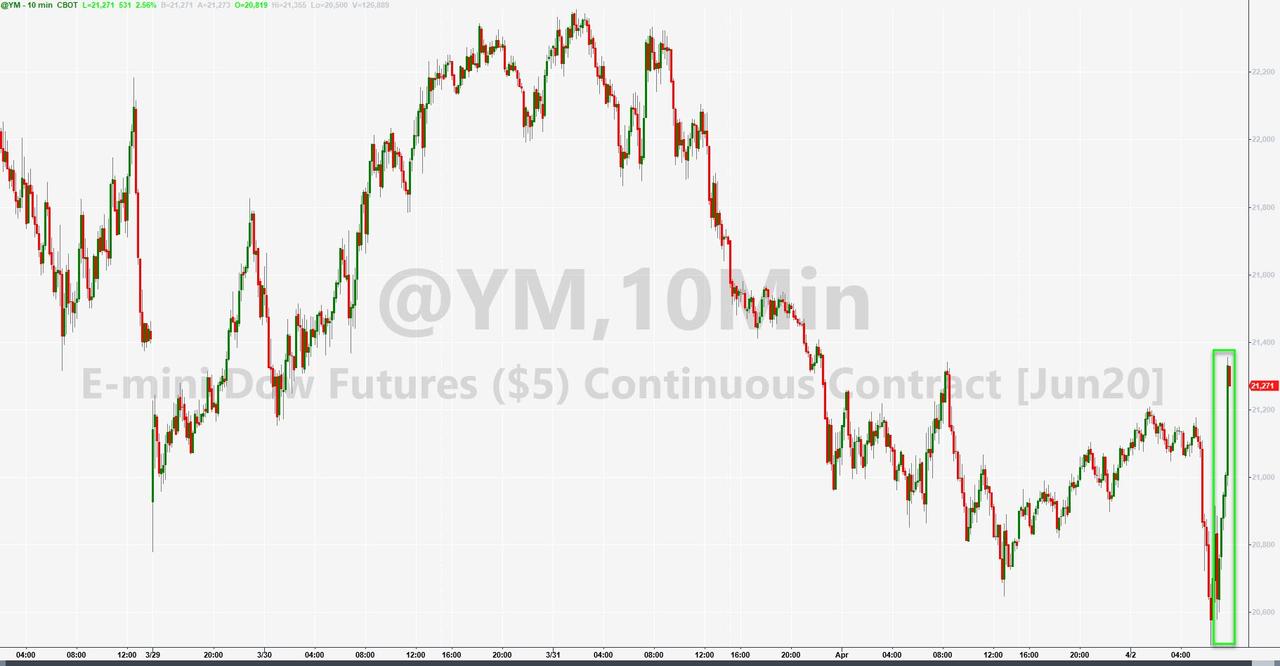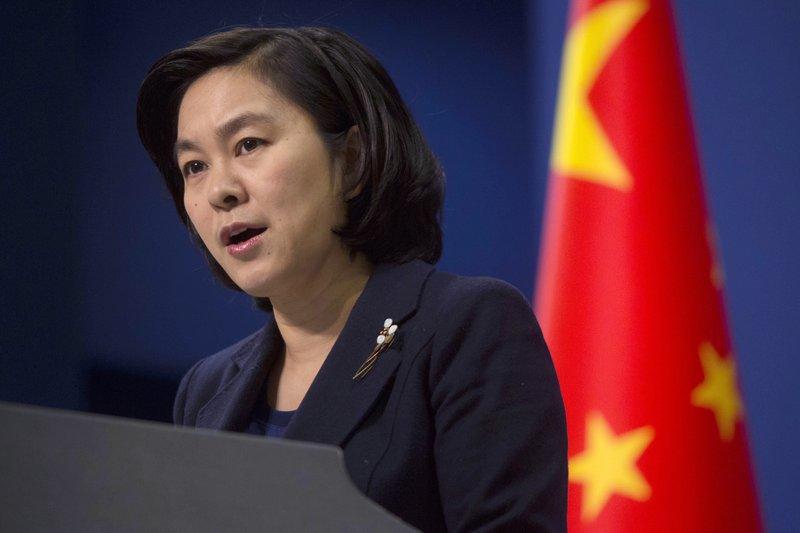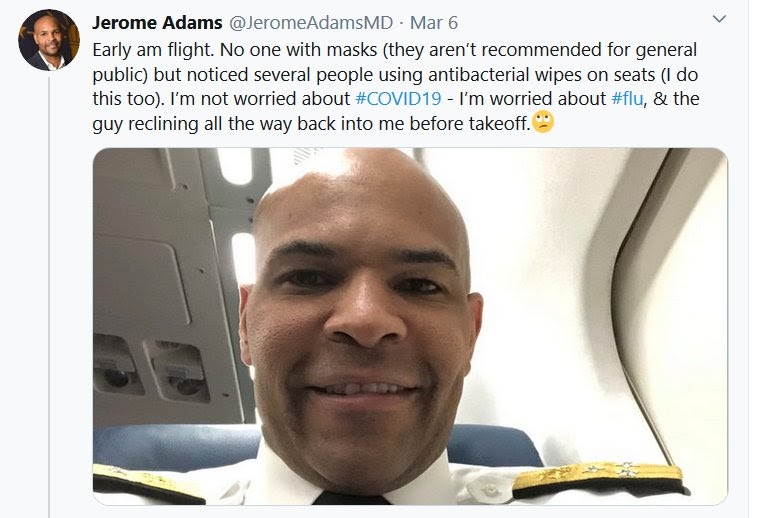“There Are Only Two Perfect Hedges…”
Authored by Bill Blain via MorningPorridge.com,
“There are only two perfect hedges; the first is a flat book and the other is to be found in a Japanese garden.”
(I must thank my fellow teenage scribbler Anthony Peters for this morning’s quote.)
I warned April was going to be bad. Stocks down, bonds up. Everyone shocked and surprised by the Trump’s admission “It’s going to be bad…”, apparently. If you are still looking at the virus news for clues, wake up: It is bad, it’s going to peak, there is a risk of second wave. Stop. You can’t do anything about it. And if you worry about Covid-19, you are worrying about the wrong stuff.
It’s about the economy, stupid!
I was reading an investment letter from a well known UK asset manager this morning, who are blithely predicting a V-Shaped recovery from the third quarter onwards will get investors their money back.
They had the good sense to caveat it with some “as long as the virus doesn’t change the rules” mumble-swerve. They think QE Infinity packages have “resolved” the debt bubble, the equity market is now realistically priced for a global recovery, governments’ have mitigated the damage, and we will see a massive jump in sentiment, activity and repressed demand when the lockdowns end, and economies reopen with a leap of unfettered joy.
I want to meet their crack dealer. It must be extraordinary stuff.
There is certainly going to be recovery – and not just on the back of pent-up demand, but it’s going to be seriously crippled by the damage already done. Whether companies have been shuttered, bankrupted or nationalised, it’s going to impact the speed of their response. Putting millions of people and companies back to work, in a decimated work-scape will not be immediate. Resolving billions of claims and counter claims will be fraught. I suspect it will be a great time to be a corporate lawyer, insolvency practitioner, and forensic accountant.
How quickly we come out of this depends on how RESILIENT our economies prove to be. I am concerned.
Governments have made big promises. There is a growing risk many of their support packages, designed to mitigate the effect of lockdown, could be perceived as failing. Perception is reality. Policy Deliverability is a critical component of Government efforts to enhance the Resilience of their economies to this crisis. At the moment the anecdotal evidence suggest they are long promises, short deliverables.
Give them time… but..
Resilience is a function of confidence the government is doing the right thing. Here in the UK we pride ourselves on our ability to triumph in adversity, get through the bad times, and our National Resilience. That is going to be severely tested in coming weeks. For instance, the dismal performance of equivocating ministers shows it’s clear our “Wartime Government” utterly failed to coordinate the deliverability of an effective testing policy – which has massive implications for effectively handling the virus crisis and particularly timing the end of the economically catastrophic lockdown.
Failures happen. We learn from them.
Consider the pitiful confused response of the UK government in the opening years of the Second World War, taking years to find its stride, but eventually delivering a coordinated wartime economy that massively outproduced and outfought our enemies. That took place over 6 years. This time we have a few weeks.
There are lots of new policies, programmes and plans. There are risks in terms of their long-term consequences and effects, but the biggest risk is their immediate deliverability. Read through the papers this morning and you get snapshots of just how demanding the need for them is:
-
There have been more immediate layoffs around the globe already than through the whole of the 2007-2009 crisis. UK Universal Credit Claims jumped by 1 mm people last week – UK unemployment is headed for double digits. Norway’s unemployment rate already hit 10.4%. Half a million German SME’s have applied for support to shorten worker hours. Danny Blanchflower, now of Dartmouth College, predicts 10 million Americans were put out of work in March.
-
Most consumers have limited reserves and savings to cope with long-term loss or reduced earnings. The losses we’ve already seen in auto-loans, credit cards, student loans, and rentals are going to multiply. A massive global consumer Demand Shock is imminent.
-
Companies are complaining government loan guarantees are locked up in red-tape and difficult to obtain. Shuttered shops and restaurants across the UK are receiving threatening demands to pay rent or go to court. (Knight Frank says less than a 1/3rd of the UK high street is paying rent.) Similar is happening across the Occidental world.
-
Airlines are begging for bailouts. Companies around the globe are scrabbling for cash to withstand a few months of shutdown. Companies are going to be constrained for years by the long-term consequences of surviving this immediate crisis. Just-in-time companies lack time to survive.
These are all facts of real economic damage. Pile on top of that theoretical damage like a sovereign risk crisis in Europe, a renewed trade war as China tries to muscle in on US allies, and just how bad an oil crisis develops…
On the topic of China, a must read WSJ piece this morning: China Assets Claim to Global Leadership, Mask by Mask.. It’s got some great quotes:
“When the epidemic started to explode everywhere, it was China who the entire world asked for help, and not the United States, the ‘beacon of democracy,’” the embassy said.
“It is China who lent a helping hand to more than 80 nations. Not the United States.”
Or how about this classic:
“Faced with this great epidemic, the philosophy of a community of shared future for mankind put forward by President Xi Jinping has seen its value for these times magnified,” Vice Foreign Minister Luo Zhaohui said in a press conference.
In view of all these points, ask yourself if you’d stay invested in the optimism of the firm that wrote the investment letter I referred to above….
Meanwhile.. Cruising…
Sometimes even I am surprised. Carnival Cruise Lines raised a $4 bln from a new 3-year 12% bond issue yesterday, secured on its fleet. I thought cruising was finished, but apparently the customers are still queuing up to buy holidays, and 45% of Carnival customers chose credit for future trips rather than a cash refund for cancelled trips. Forget the fact the new cash will only keep them solvent through the summer – when they will need more – or what the ships might be worth.. (there is always scrap.)
On the back of QE infinity – well you can apparently sell anything. New issue bond markets have never been so busy, pumping out bonds the punters are happy to buy, secure in the knowledge the Fed or the ECB will backstop them with QE bids. What’s not to like…
What’s interesting is BBB rated Carnival is paying 12% on the back of its compromised business and distressed assets. Yet, I am hearing there are funds willing to bid even more aggressively for similar distressed assets in equally troubled industries. (If anyone has a couple of billion to invest in senior secured debt with good security over modern assets, and a 4%+ coupon, give me a shout..)
Boeing
I might have upset a few C-Suite execs at Boeing y’day when I described the plane maker as an object lesson in doing absolutely the wrong thing on my Webinar for Iskha on the Outlook for Aviation. I ended up asking the question: “Why bail out Boeing for its appalling corporate behaviour?”
My reasoning was that it’s a critical part of the US industrial ecosystem, but if the US is really heading for a wartime footing why not address air travel holistically: nationalise it, and pump in the money required to design and build new fuel efficient, composite aircraft that will prove long-term environmentally friendly, and be what airlines and passengers want when the global economy reopens.
Why not?
Tyler Durden
Thu, 04/02/2020 – 10:44
via ZeroHedge News https://ift.tt/2wXtUzl Tyler Durden

